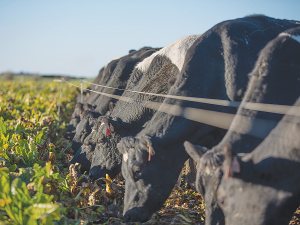NZVA urges animal owners to help fight antibiotic resistance through preventative care
Animal owners can help protect life-saving antibiotics from resistant bacteria by keeping their animals healthy, says the New Zealand Veterinary Association.
 The New Zealand Veterinary Association Te Pae Kīrehe is calling on animal owners to work with their veterinarian to keep animals healthy and help prevent drug-resistant infections from developing.
The New Zealand Veterinary Association Te Pae Kīrehe is calling on animal owners to work with their veterinarian to keep animals healthy and help prevent drug-resistant infections from developing.
The New Zealand Veterinary Association Te Pae Kīrehe (NZVA) is calling on animal owners to work with their veterinarian to keep animals healthy and help prevent drug-resistant infections from developing.
Owners are being urged to vaccinate their animals against preventable diseases and keep these up-to-date; isolate sick and potentially infectious animals away from healthy ones; and provide a well-balanced diet and continued access to shade and shelter, to help stop animals becoming unwell.
The calls come as the veterinary profession marks World AMR Awarenes Week (18-24 November), a global campaign to address the issue of antimicrobial resistance (AMR) that threatens human and animal health.
The World Health Organisation lists AMR as a top 10 global health threat to people, animals and the environment.
NZVA head of veterinary services – companion animal Sally Cory says reducing the need for antibiotic treatment helps safeguard these critical medicines for the future.
“The more we can keep animals well, the less frequently antibiotics may need to be used, and the less chance there is of harmful bacteria becoming difficult or impossible to treat,” says Cory.
“We want to see all owners doing everything they can to reduce the risk of preventable illnesses and infections from arising, not just for the comfort and welfare of their animals, but for everyone’s long-term health – antibiotic resistant infections are a significant threat.”
Cory adds that owner awareness of how precious antibiotics are is an ongoing challenge, as vets routinely manage owner expectations to be prescribed the drugs.
“We don’t always need antibiotics when we’re unwell, and it’s the same for animals,” she says. “If you are prescribed an antibiotic for your pet or stock, it’s critical that you follow your vet’s instructions on the amount, frequency, and length of time it needs to be given.”
For farmers, having an effective and comprehensive vaccination programme is key to preventing illness, as many diseases an be effectively vaccinated against.
Owners should also let their veterinarian know if their animal isn’t responding to antibiotics, as they may need more investigations and/or a different approach.
“This doesn’t necessarily mean they need another or antibiotic or a bigger dose, but a different course of action might be needed,” Cory says.
Total antibiotic use in all New Zealand animals has fallen in recent years. NZVA says these efforts are contributing to their aspirational goal that by 2030, New Zealand will not need antibiotics for the maintenance of animal health and wellness.
Mating wrapped up last month at the across-breed Beef Progeny Test on Pāmu’s Kepler Farm in Manapouri.
Libby Judson is a keeper of memories from an age gone by. Tim Fulton tells her story.
A New Zealand-first native tree study has highlighted the Bioeconomy Science Institute's position as a forestry research leader.
Hemp fibre processor Rubisco is relocating its core processing facility to Ashburton as part of a $20-$30 million expansion to leverage what it says is an accelerating global demand for sustainable and renewable fibres.
Tradition meets some of the latest in technology at the 2026 East Coast Farming Expo.
OPINION: Trade Minister Todd McClay and the trade negotiator in government have presented Kiwis with an amazing gift for 2026 - a long awaited and critical free trade deal with India.

OPINION: If the hand-wringing, cravat and bow-tie wearing commentariat of a left-leaning persuasion had any influence on global markets, we'd…
OPINION: With Winston Peters playing politics with the PM's Indian FTA, all eyes will be on Labour who have the…